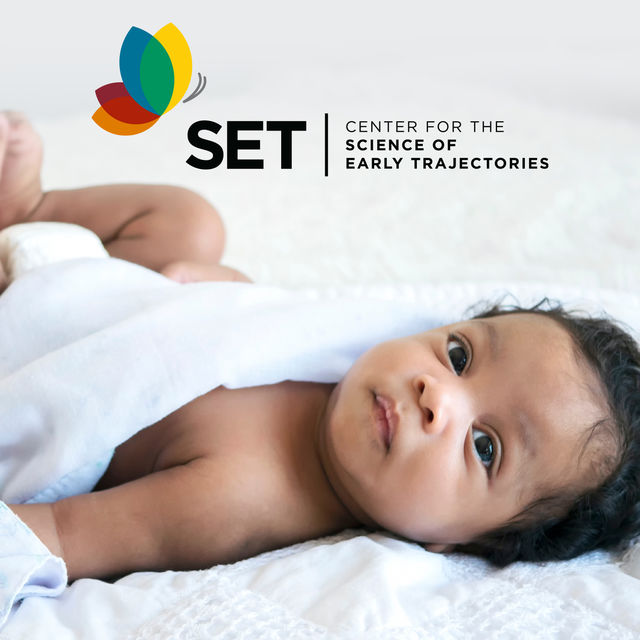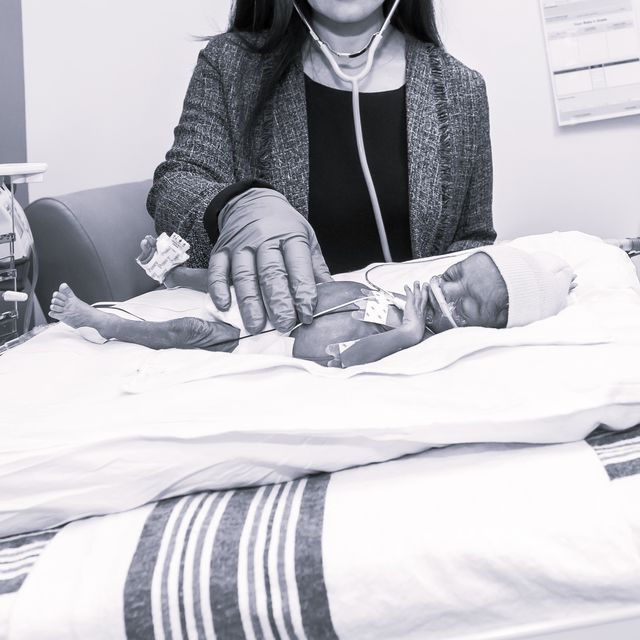
Neonatal Research
The research program in the Margaret M. and George A. Stephen Neonatal Intensive Care Unit (NICU) is multifaceted, but ultimately has one goal: how do we provide the best care so that our patients are the healthiest they can be for the long-term. Newborns are hospitalized in the NICU when they cannot go home for any reason. This can include preterm birth, congenital anomalies, infection, among others. The UChicago NICU is developing an Individualized Infant Complex Clinical Care Program which has at its heart, has a focus on the infant(s) and families. This care program will begin with the birthing parents, identifying those at high-risk for complications, and coordinating with the Fetal Care Center during pregnancy. The NICU of the Future will have the ability to implement innovations in real-time and have expanded support services for parents. Once infants graduate from the NICU, UChicago Medicine will continue to care for our patients in a specialized follow-up clinic, a rarity in the area, with a focus on improving medical and neurodevelopmental outcomes.
Erika Claud, MD, Section Chief, Neonatology
Center for the Science of Early Trajectories
The Center for the Science of Early Trajectories (SET) at its core is focused on optimizing long-term development for all our patients by studying premature infants. Like many of our patients, infants in our NICU may not be on their optimal developmental trajectory. Infants born preterm enter the world with immature organs and must complete this foundational development under suboptimal conditions. This puts them at higher risk in both the short- and long-term for common diseases and disorders. Our other patients both young and old are routinely diagnosed with new conditions due to underdevelopment or maldevelopment of major organ systems. The SET Center is working towards an advanced understanding of biological development that would allow us to identify when a patient has stepped off their optimal trajectory, and design interventions that puts them back on the right path. We bring together scientists from diverse areas of study to research biomarkers for organ development and how they affect health outcomes for our patients.
Erika Claud, Inaugural Director | Cristina Corrigan, Center Manager
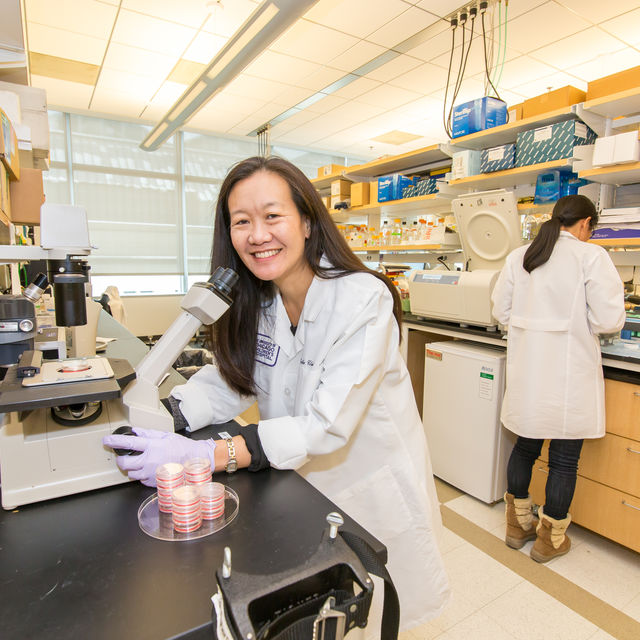
Microbiome
The Claud laboratory is focused on understanding the role of microbes in development of the preterm infant. Her laboratory utilizes state-of-the-art experimental approaches including cultivation-independent molecular analyses of microbial community structure and function as well as in vitro and in vivo modeling of intestinal and brain development. She is using both 16S rRNA-derived data and shotgun metagenomic analyses to demonstrate differences in microbial community taxonomy, function, and temporal development in preterm infants. She has also developed a model of host/microbe interaction in which fecal microbiome samples from preterm infants are transfaunated to pregnant germ free dams resulting in pups with a growth phenotype that matches that of the human infant source of the microbiome community. She is the PI of the MIND (Microbiome in Neonatal Development) cohort which has established a biorepository of microbiome samples with corresponding clinical, social, and environment data of preterm infants from birth to school age.
Erika Claud, MD, Principal Investigator
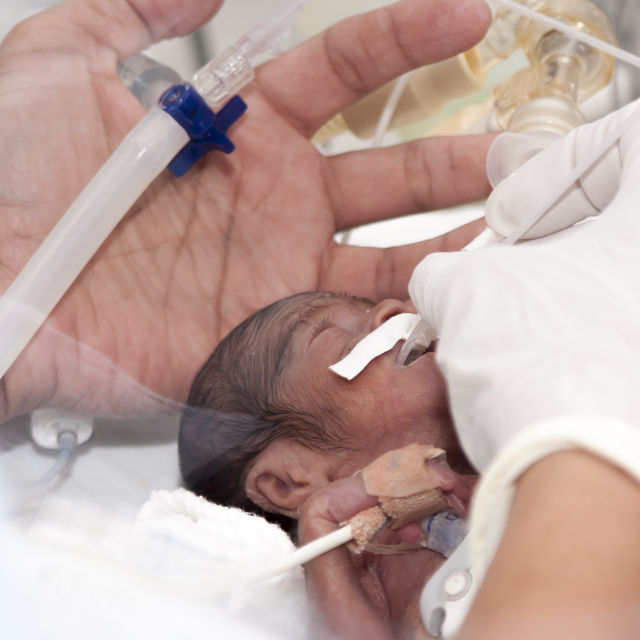
Quality Improvement in the NICU
The Director of Quality in the NICU, Walid Hussain, MD, joined the Department of Pediatrics in 2022. His academic interest is focused on quality initiatives. Currently, his main project is centered around the delivery of surfactant for respiratory distress syndrome (RDS) via a minimally invasive method, known as minimally invasive surfactant therapy (MIST). Previously, the only way to deliver surfactant was via an endotracheal tube, but new research has shown delivery through a small catheter without positive pressure ventilation has improved outcomes on our premature infants, and we are working on fully implementing this through a Quality initiative in the NICU. Separate of that, we are working on a research project of premature infants comparing the use of MIST in the delivery room versus what is the current standard of care of only delivering surfactant if the infant meets certain clinical criteria. Other quality improvement projects we are currently working on include the adoption of the early-onset sepsis calculator in the NICU to help direct antibiotic usage for our term and near-term infants in the first 72 hours of life, with the hope of decreasing over-utilization of antibiotics in this group, as well as a transcutaneous carbon dioxide (CO2) monitoring system which uses a noninvasive way to monitor the CO2 of our ventilated infants to attempt to decrease excessive blood draws.
Walid Hussain, MD, Principal Investigator
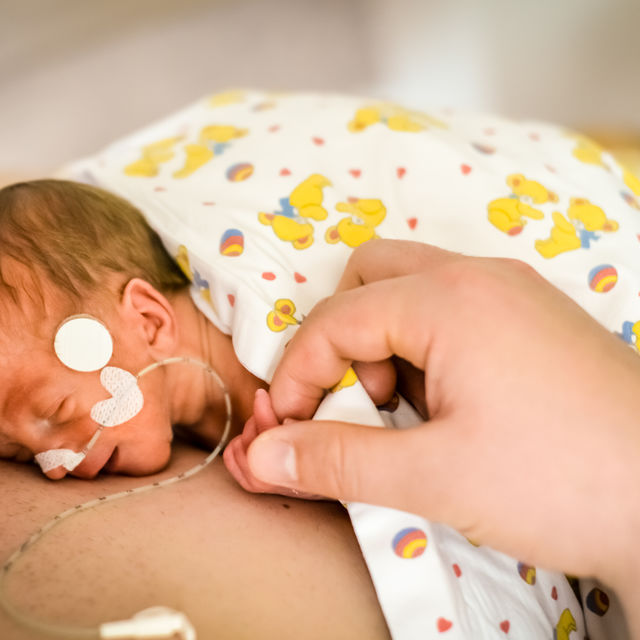
Skin-to-Skin Contact
While infants are hospitalized in NICUs, they can struggle to adjust to life outside the womb and may face several health challenges due to their underdevelopment. Many preterm infants have challenges with regular biological processes such as regulating their body temperature. Skin-to-Skin Contact (SSC) is one intervention that has been shown to increase survival and decrease negative health outcomes when implemented. Also called Kangaroo Mother Care (KMC), SSC is the practice of placing an infant directly on a parent or caregiver’s bare chest in an upright position. Unfortunately, for various reasons, families are not able to be present in the NICU to provide SSC whether due to other health concerns, a return to work, or caring for older siblings. Our patient population on the South Side of Chicago is at even higher risk of these barriers due to historic disinvestment in the local communities and neighborhoods. The Tian-Fox-Groden team are developing an artificial skin-to-skin tool that mimic’s the physiologic features of SSC that can be implemented in the NICU. This new care regimen would provide innumerable advancements to infants’ development during their hospitalization and long into the future.
Bozhi Tian, Leah Fox, Catherine Groden, Principal Investigators
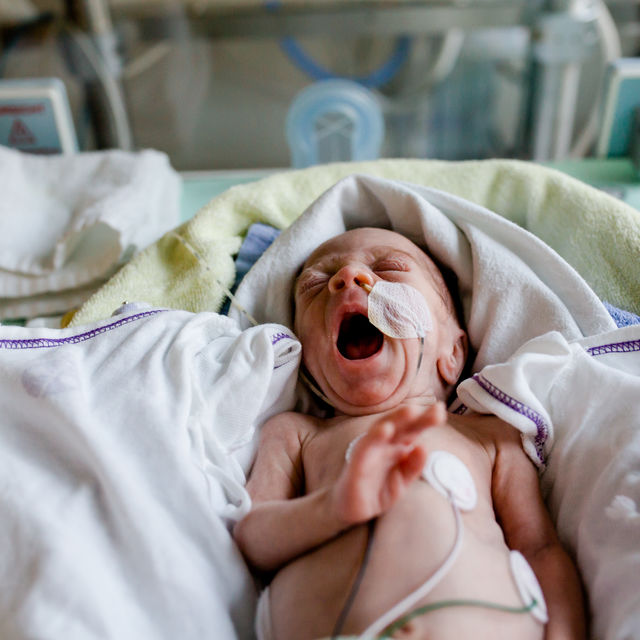
Sleep and Neonates
Sleep is one of the most basic human functions and is necessary to support important processes in human development, organic and neurocognitive functioning. From emotional and executive memory fixation to clearing waste material through the lymphatic system, sleep is a critical facet of human existence. Through sleep, humans also rest, allowing their central nervous system to restore itself back to the necessary alertness level for day-to-day activities. Polysomnography remains the gold standard in evaluation of normal sleep patterns and sleep related pathologies, such as sleep disordered breathing, sleep related hypoventilation and sleep related neurological abnormalities. Neonatal sleep patterns and polysomnography normative values remain woefully understudied, especially when compared to normative values research done in the domains of adult and pediatric sleep. Our portable laboratory allow us to study convalescent premature infants while still in the NICU to help establishing convalescent premature neonatal polysomnography reference values, create a robust set of data that can be analyzed, presented and later applied to the general neonatal population in similar special care nurseries across the globe.
Tomas Munoz, Jeremy Marks, Principal Investigators
